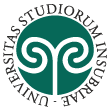Director: Andrea Vezzulli
Duration: 3 years
Posts: for the academic year 2023-2024 there are 7 posts available: 6 “ordinary” scholarships plus 1 “additional” scholarship (DM 118 – PNRR) on a specific research topic: “TOWARDS EXPLAINABLE, INTERPRETABLE, HUMAN-CENTRIC ARTIFICIAL INTELLIGENCE IN BUSINESS, ECONOMICS AND SOCIETY” (see below the link to the call for more details).
Scholarships: each post is endowed with a scholarship of about € 16,243 gross per year . The scholarship can be increased by 50% when a student visits foreign universities and institutions. Starting from the 2nd year, each student is endowed with an additional budget of about € 1,624 for research activities.
Applications
Full details for applying to the academic year 2023-24 (Cycle 39): here (in Italian) and here (in English). The full call for applications can be found here (in Italian) and here (in English).
Candidates are required to present their Curriculum Vitae in .pdf format using the following template
https://archivio.uninsubria.it/files/cvtemplate2023mmeddocx
Deadline for applications for the academic year 2023-24 (Cycle 39): August 2nd, 2023 (12 pm CEST).
Shortlisted candidates will be selected and interviewed (via Microsoft Teams) in September.
The enrolment procedure for the new cohort of PhD students will be completed in October and they will officially start their activities from November 1st, 2023.
Partnerships: the PhD program in Methods and Models for Economic Decisions participates in the inter-university PhD programme in Sustainable Development and Climate change (PhD SDC), coordinated by IUSS – Pavia (Curriculum 2: Socio-economic risk and impacts), with a 50% co-funded scholarship for the a.y. 2021/2022 – cycle 37, and with a fully funded scholarship for the a.y. 2022/2023 – cycle 38 and for the a.y. 2023/2024 – cycle 39. Reference persons for the Department of Economics – University of Insubria: Prof.ssa Elena Maggi and Dr. Eugenio Caverzasi.
Topic and goals
A significant part of economic analysis focuses on decision-making processes. Consumers and producers, workers and firms, banks and managers, households and policy makers continuously make decisions which are economically relevant. Economists are interested in understanding, predicting or modifying the processes underlying these decisions.
The analysis of decisions relies on methods and models that differ significantly across various fields of economic research. For instance, classical decision theory is largely based on abstract mathematical models, while more recent research in behavioral decision theory often relies on experimental methods. Econometric tools are used to investigate the determinants of specific decisions, such as those concerning labor, transports, or health. Computational methods are used to simulate how artificial agents interact, and to investigate the economic effects of their interaction.
The PhD program in Methods and Models for Economic Decisions trains young researchers to master the variety of theoretical and applied approaches that are used in economics for analyzing decision-making processes. In the first year of the program, students attend compulsory courses where they acquire a broad set of research skills in theoretical and data analysis, that allow them to tackle the complex phenomena related to decision making. During the second and third year of the program, students focus on their own research under the supervision of a faculty member and interact in seminars and reading groups in their field of interest.
The program strongly encourages students to spend part of their PhD abroad and supports them in gaining international experience. The central goal of the program is to create independent researchers, who can then pursue an academic career in leading universities or obtain research positions in private firms or international organizations.
The PhD program is hosted by the Department of Economics of the University of Insubria, which has been granted the “Departments of Excellence” award and funding plan for the period 2023 – 2027 by the ANVUR (Italian National Agency for the Evaluation of Universities and Research Institutes), ranking 8th among the Italian departments of economics and statistics.
Organization
In the first year, students attend the program’s courses at the Department of Economics of Insubria University, which is located in Varese. These courses are not the standard first-year courses in quantitative methods, microeconomics, macroeconomics, but cover the specific and more advanced topics in decision theory addressed by the doctoral program.
Courses focus on three main areas of research: (i) the economic theory of decision making, in the mainstream as well as behavioral version; (ii) econometric techniques to analyze economic decisions recorded either in the laboratory or in the field; (iii) the study of economic indicators of risk and inequality associated with the outcome of collective choices. Additional courses related to the program’s topic are taught by external professors visiting the Economics Department. During the first year, students also identify a research area for their dissertation and the member of the PhD board who will serve as their supervisor, eventually pinning down the topic of their first research paper.
The second and third years are entirely dedicated to research. Students work on their research papers and are expected to attend seminars and other training events held at the Department of Economics. In addition, students are strongly encouraged to spend part of the second and third years in foreign universities and research institutions to gain international experience. They can choose among universities having specific exchange programs with Insubria University, such as the University of Jena and the University of Bordeaux, as well as among other leading institutions in their field of research.
Over the last few years, students in their second or third year have spent research periods in the following institutions: Duke University (USA), Stony Brook University, New York (USA), University of Nottingham (UK), University of Kent (UK), University of Jena (Germany), University of Bordeaux (France), University of Lille (France), University Jaume I, Castellón (Spain), University of Granada (Spain), Technical University of Ostrava (Czech Republic).
From the second year onwards, students are also encouraged to present their research papers at internal seminars and international conferences.
